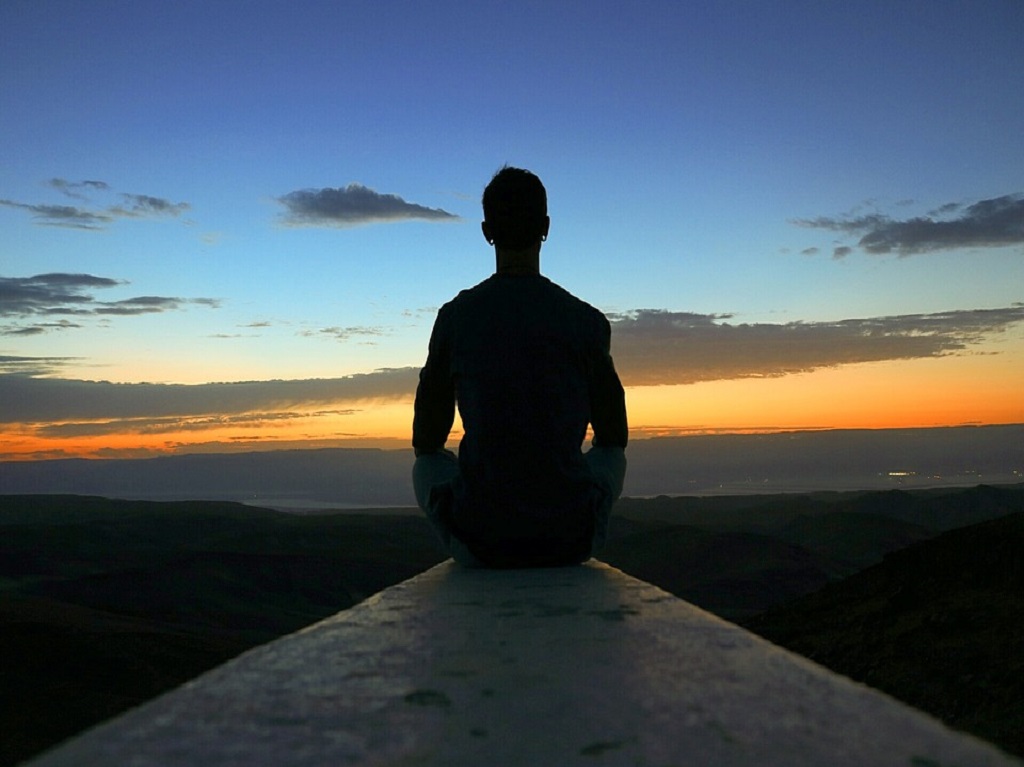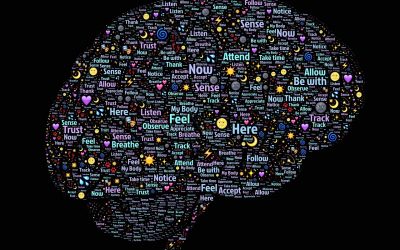What is Mindfulness Meditation?
There was a point in my life, where I suffered every moment while I was awake. What I found difficult in the process was the feeling of hopelessness that came with being in the deep rut. Being at the lowest point of my life, one Saturday evening alone in my room I said to myself either this continuous suffering or my life has to end.
Desperate for immediate help, I tried several different options such as attending counselling sessions, being at social gatherings, volunteering to name a few. Although, I felt some spurts of relief they were short-lived and I soon returned to my suffering. The more I tried to run away from my condition the more pronounced its impact became.
In the fall of 2013, I was sitting on the ghats (bank) of Ganges during my visit to Varanasi, India, where I had a life-changing encounter with a shirtless baba. We both sat quietly looking out towards the river. Then out of the blues, he said, “Can I ask you a question?” I responded “sure.” He asked, “what are you carrying with you?” That question hit me like a rock. In a state of shock, I said, “what do you mean?” Still looking out towards the river, he responded “your energy says you are carrying something deep inside you. Let it go, son.” There was a dead silence in my soul at that moment, after which I said “I want to but I just don’t know how.” It was him who introduced me to mindfulness meditation, the practice that changed my life forever.
I am sure you have found yourself in similar situations multiple times during your lifetime, where you have suffered and/or have found your loved one suffer.
In my opinion, cultivating the unique practice of “mindfulness meditation” is one of the most powerful ways to overcome suffering, depression, and anxiety that most of us struggle daily.
Before understanding what’s mindfulness meditation? Let’s understand mindfulness and meditation individually first.
What is mindfulness?
Mindfulness is simply the ability to be fully present at the moment and being aware of where we are and what we are doing. Mindfulness is the practice of purposefully focusing our full attention on what’s happening in the present, in the now. Bringing your full awareness to what’s happening in the present is being mindful.
While many think mindfulness is something we need to acquire, the reality is mindfulness is something we all naturally possess and all we need to do is to start acknowledging and exercising its presence to make it a part of our day-to-day life.
Also read: How to Practice Mindfulness Meditation?
What is meditation?
From ancient texts, mediation in its basic form simply means “exploring and transforming the mind.” Meditation enables us to learn the patterns and habits of our mind. Unlocking the existing patterns helps us to find the unwanted weeds in the garden of our mind, which we can replace with the trees of the fruits we want in our lives.
Of course, transforming a weed-filled garden with fruits isn’t an overnight process as such, regular work and patience are the most needed fertilizer when it comes to mediation.
So, what is mindfulness meditation?
Mindfulness meditation is simply the practice of combining mindfulness and meditation. It’s the practice of unconditionally being present in the moment and being fully aware of our thoughts, emotion and what’s happening around us in the present, no matter what it is.
Remember, this practice is about tapping into consciousness and not being judgmental. In other words, during mindfulness meditation, we are not trying to force our focus towards positive emotions and away from negative ones instead, we simply acknowledge both positive and negative emotions just as they are.
Mindfulness meditation isn’t about becoming a different version of which we originally are, instead, it’s about simply being aware of our thoughts and emotions just as they are. It’s about acknowledging their presence instead of ignoring them.
We often forget at any moment in time thoughts and emotions are an integral part of who we collectively are as a human. By constantly trying to compress or ignore their presence is the reason why most of us struggle the most. It’s because of this there is that sense of void, the nagging feeling of knowing something is missing.
Many research studies have concluded human thoughts are either busy reliving the negative events of the past, creating strong emotions of suffering or thinking about the future and its associated uncertainties, creating anxiety and stress. Mindful meditation breaks these past and future thought patterns by letting us live in the present.
The obvious question here is what good recognizing our darkness and negative thoughts does when our ultimate goal is to suffer less and feel happier.
The answer to this somewhat confusing view lies in understanding the fact that unnecessary suffering and unhappiness is a result of comparing the present moment against our expectations of how the present moment should be.
Elegantly put by Buddha “our attempt to escape from our direct experience is the root cause of suffering.” Firstly, both suffering and pleasure are part of life and we cause ourselves to suffer by excessively focusing on pleasure, which magnifies the intensity of suffering as we associate severe discomfort with it. In other words the more we focus on pleasure, the more we magnify the impact of slightest discomfort. Secondly, humans like the sense of being in control however, the outside world is anything other than something we can control. Accordingly, when things don’t go the way we had envisioned, it hurts our ego, which also triggers suffering. Thirdly, even when we are in a happy state, many of us start to suffer by worrying about what if this pleasant moment ends soon.
In mindfulness meditation when we simply acknowledge and accept the experiences as they arise and subside, we train the mind to let go of control and the consistent desire of experiences unfolding in certain desired ways. This ultimately frees us as we stop stressing about the perfect moment and accept the moment as is. Additionally, it enables us to understand what’s holding us back and beyond that the root cause of our suffering. Of course, once we have identified them, we can consciously start to replace them with positive and enriching experiences however, the key here lies in the fact that we must use our energy in creating a positive change instead of using it to antagonize ourselves about the shortcomings.
Also, remember mindfulness is a path that leads to spiritual growth, awakening, and enlightenment.
Namaste.



